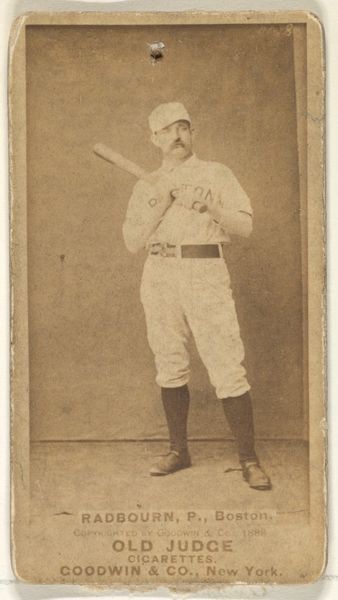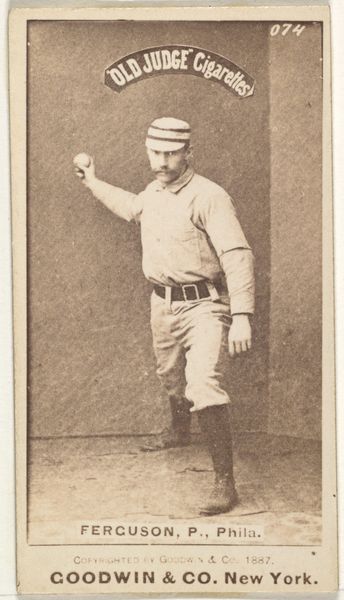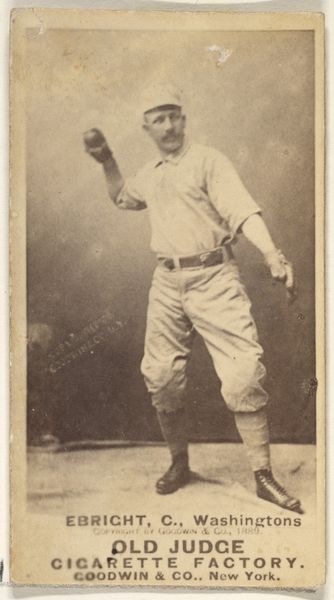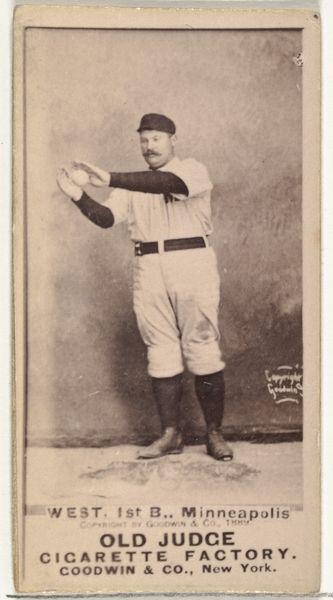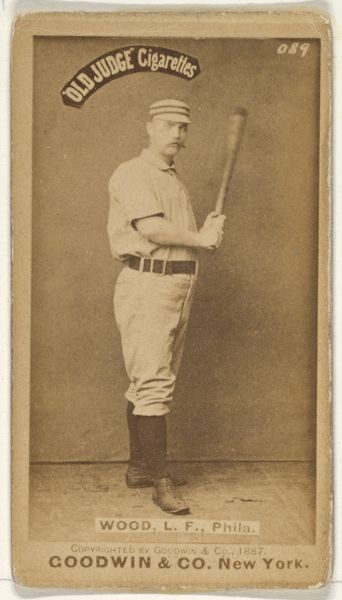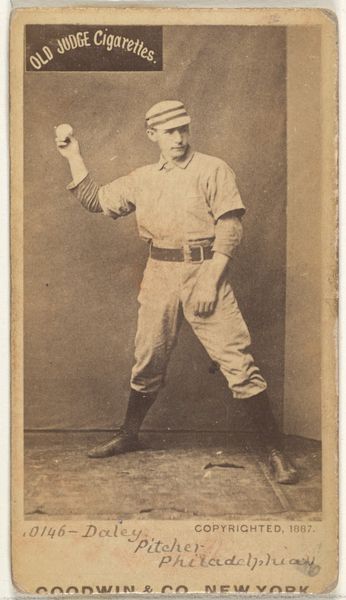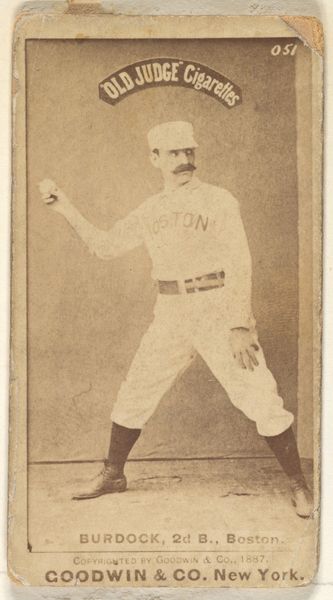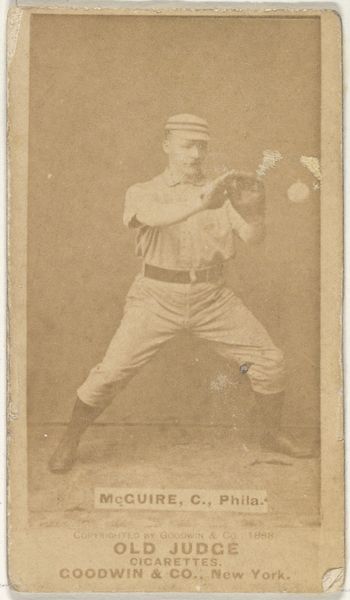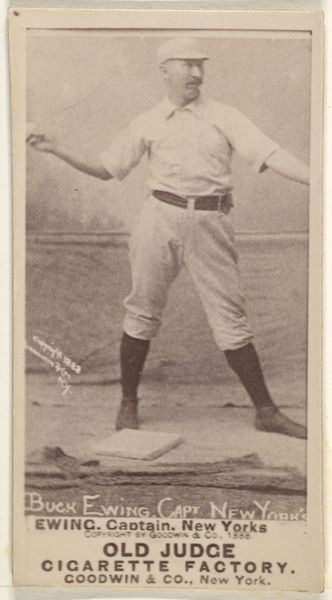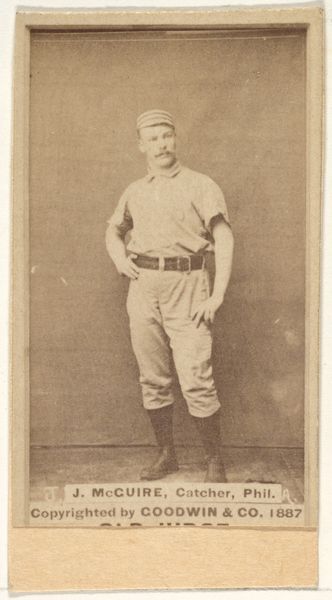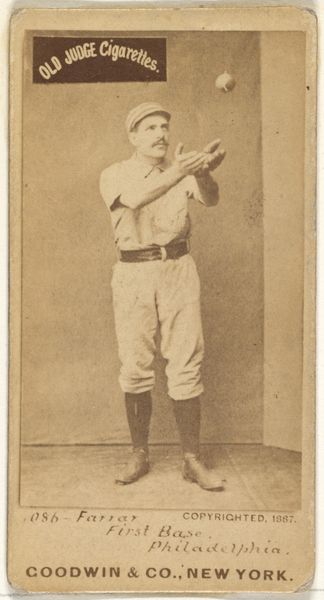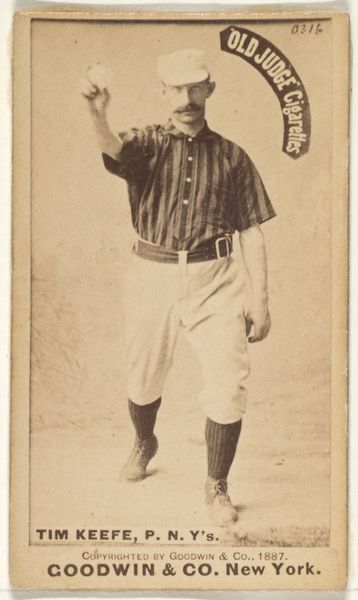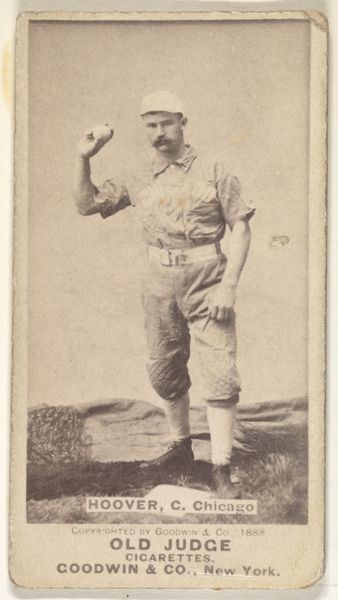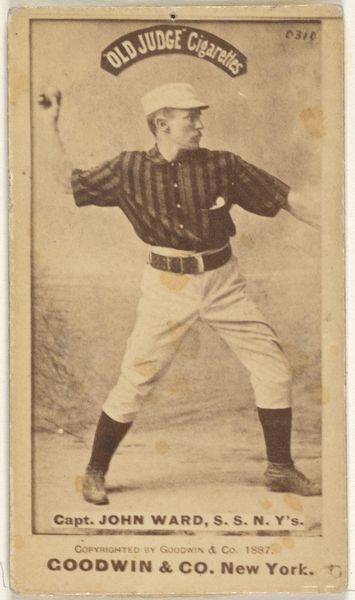
Sam Barkley, 2nd Base, Pittsburgh, from the Old Judge series (N172) for Old Judge Cigarettes 1887
0:00
0:00
print, photography
#
portrait
#
photo of handprinted image
# print
#
baseball
#
photography
#
historical photography
#
19th century
#
men
#
genre-painting
#
athlete
Dimensions: sheet: 2 11/16 x 1 3/8 in. (6.9 x 3.5 cm)
Copyright: Public Domain
Curator: Ah, here we have “Sam Barkley, 2nd Base, Pittsburgh,” a vintage photograph produced in 1887 by Goodwin & Company, as part of the Old Judge Cigarettes series. It resides in the Metropolitan Museum of Art’s collection. Editor: Well, the sepia tone is like a soft caress across time, but that posture! He’s like a coiled spring, ready to unleash. You can practically feel the anticipation crackling off it, even through the aged paper. Curator: Yes, this was a very different world of photographic practice. These weren’t gallery prints, they were printed, distributed, collected and disposed of as trade cards and cigarette inserts. Think of the material culture swirling around this card, of baseball's rising popularity, and the burgeoning tobacco industry that was feeding this image economy. Editor: It's interesting how these ephemeral items, originally meant to be disposable advertisements, have become so highly prized and evocative. Barkley here, caught mid-pitch. The texture is very subtle, but I can detect that it's photomechanical reproduction. The photograph has been transformed into something mass produced. Curator: Right. You’re also getting at the real social engine behind this: commodification and consumerism. And for me, personally, there’s a sort of nostalgic pull; this artifact acts almost like a sepia-toned daydream from my youth, you know, like catching fireflies at dusk? I never even knew this baseball player! Editor: This wasn’t high art intended for a gallery; its beauty arises out of process. The layers of mediation between baseball player, photograph, printing plate, and paper show us how taste is made as well as art, because the image has also acquired this glow. It has become rare. I wonder how many still exist. Curator: Exactly, it’s so much more. It's how these tiny, functional prints ended up gracing museum walls decades later that has always captivated me! Editor: I couldn't agree more.
Comments
No comments
Be the first to comment and join the conversation on the ultimate creative platform.
